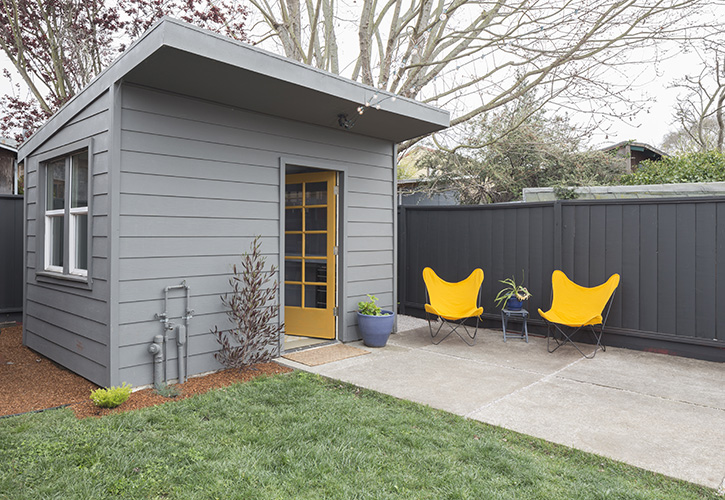UK DIY News
Home & DIY Industry Spotlight: The New Retail Journey Revealed

The pandemic has without doubt changed consumer behaviour. Whether it’s the significant shift to online, the dramatic increase in contactless payments or the rise of the anxious consumer, the impact has been considerable. Throughout the last twelve months, with Home Improvement retailers classed as ‘essential retail’ and with consumers stuck at home with time and the money to act, there has been a surge in DIY, Home Improvement and Garden spending.
There are plenty of surveys analysing the impact on consumers, but never before have I seen a survey asking how the retailers have adapted their businesses during the pandemic and how the purchase journey has changed for their customers.
In their Home & DIY Industry Spotlight Report, Critizr speaks to some of the leading Home Improvement and Furniture retailers in Europe and reveals the new retail journey.
Founded in 2012, Critizr Connection is a customer interaction management platform and used as part of the daily operations of Global DIY and Home Improvements Retailers such as Leroy Merlin, Mr Bricolage and Bricoman.
With input from companies like Castorama the report looks into:-
· What changes have been seen in store footfall v online traffic?
· How has the operational side of their business changed?
· What new retail technology has been invested in during this period?
· Has there been an increase or decrease in customer feedback?
· What have they learnt from the last 12 months and what are the three key elements of today’s customer experience?
Download the Critizr report here.
Rising in-store and online sales
During April and the first part of May 2020, despite being classed as ‘Essential Retailers’ the majority of European Home Improvement stores were forced to close their doors, whilst they reviewed their operations and worked out how they could safely reopen for both staff and customers. These closures coincided with the traditional seasonal peak for the Home Improvement Industry Easter, as well as an extended period of fine weather.
At exactly the same time, we were all forced to stay at home and with time on our hands and money in our pockets, we turned our attention to our homes and gardens and how we could improve them. Rather than taking on major structural or renovation projects, many of us were tempted to tackle smaller home improvement tasks such as painting and decorating, creating a home office and putting up shelving and improving our storage.

A combination of all these factors, generated unprecedented demand for Home Improvement businesses, stretching the capacity of retailers websites, warehouses and delivery services like never before. At one stage over Easter weekend, customers were forced to join virtual queues, waiting up to 3 hours purely to access the website. Once the retailers began to reopen their doors, this significant demand immediately transferred to the physical stores, where huge queues of customers began to form outside, as the retailers desperately tried to limit the numbers of people in their stores.
Connecting with their customers
The Home Improvement sector stands out amongst the majority of retail, as one where human interaction, customer help and conversations are critical. For customers, improving their homes and gardens is rarely ever a single, well researched purchase, such as you find within furniture or electrical.
The customer journey in home improvement is fraught with friction, a combination of irregular purchases and complexity, where completing even some of the simplest home improvement projects can lead to customers needing to reach out for help. To date, retailers within this sector have not become famous for their service. Delays reaching customer service telephone lines or poorly trained staff in store have generated a poor reputation, with customers preferring to watch YouTube videos or research supplier brand websites for the answers themselves.

However, to generate long term loyalty, it is critical that these retailers reach-out to their customers and positively engage at every possible touch point. Whether this is through clearly defined customer help areas in store, providing clear contact details on websites or in store or through the provision of QR codes at point of sale, providing more information, price comparisons or videos, there is plenty that can be done.
What does the future look like?
Although envisaging ‘normal life’ is still quite hard, as we exit lockdown, it’s easy to believe that improving our homes and gardens will no longer be a priority for us, falling well behind the growing list of activities, holidays and trips that we’ve been longing for.
Nothing beats the transformational benefits of a decorating or DIY project and experiencing the end result. Whether it is the feeling of pride and joy when you walk into a familiar room with freshly painted walls, doors and skirting boards, the sense of achievement you feel when you step back and admire the recently installed kitchen or the feeling of enjoyment you experience when wandering around a well-planted garden complete with newly painted shed and fence, the benefits are immediate.

This positive state and emotion often stay with us for some time providing us with that all-important feeling of happiness and of being grounded, demonstrating just how crucial our home environment is to our health and mental wellbeing.
It’s likely that many of us will continue to work from home, even when the Pandemic is a distant memory. As a result, our homes and gardens will continue to be a greater priority in our lives and the money we save by not commuting and all the other associated expenses is likely to benefit the Home Improvement industry for many years to come.
Download the Critizr report here.
Steve Collinge is an international speaker, influencer, retail commentator and is Managing Director of Insight Retail Group Ltd and executive editor of Insight DIY. You can follow Steve on LinkedIn here and on Twitter here.
Written by Steve Collinge - International speaker, thought leader, retail influencer and commentator, MD Insight Retail Group & Executive Editor Insight DIY.
Thank you for the excellent presentation that you gave at Woodbury Park on Thursday morning. It was very interesting and thought-provoking for our Retail members. The feedback has been excellent.











































